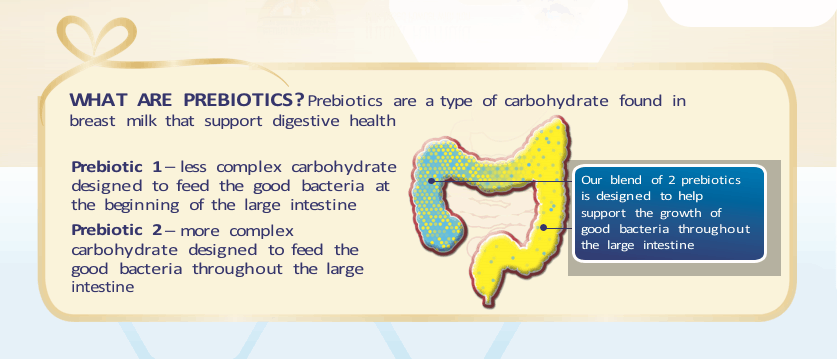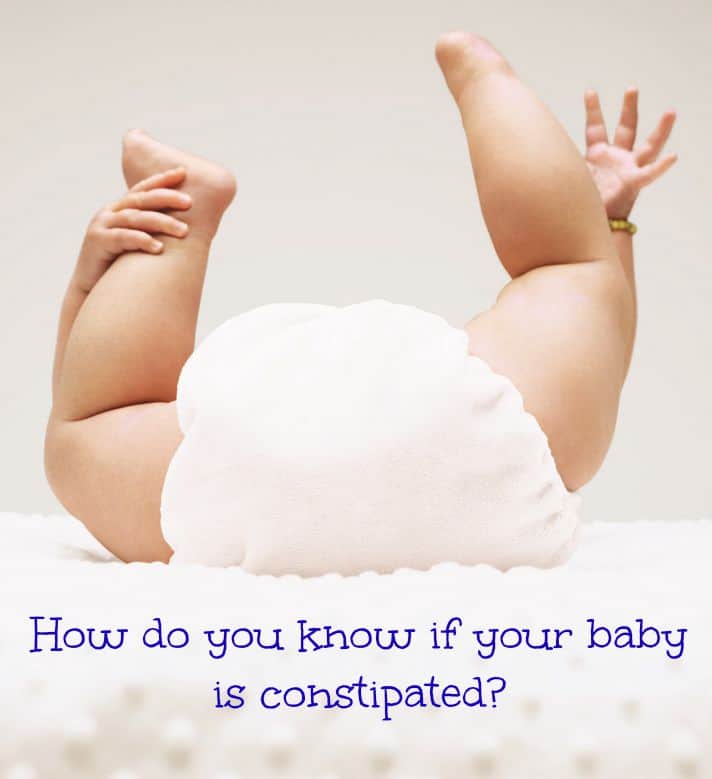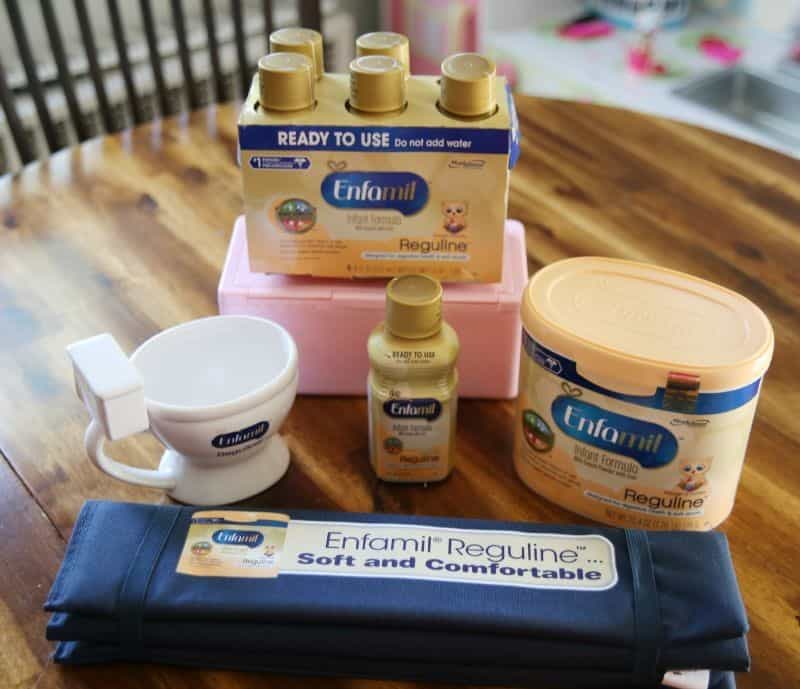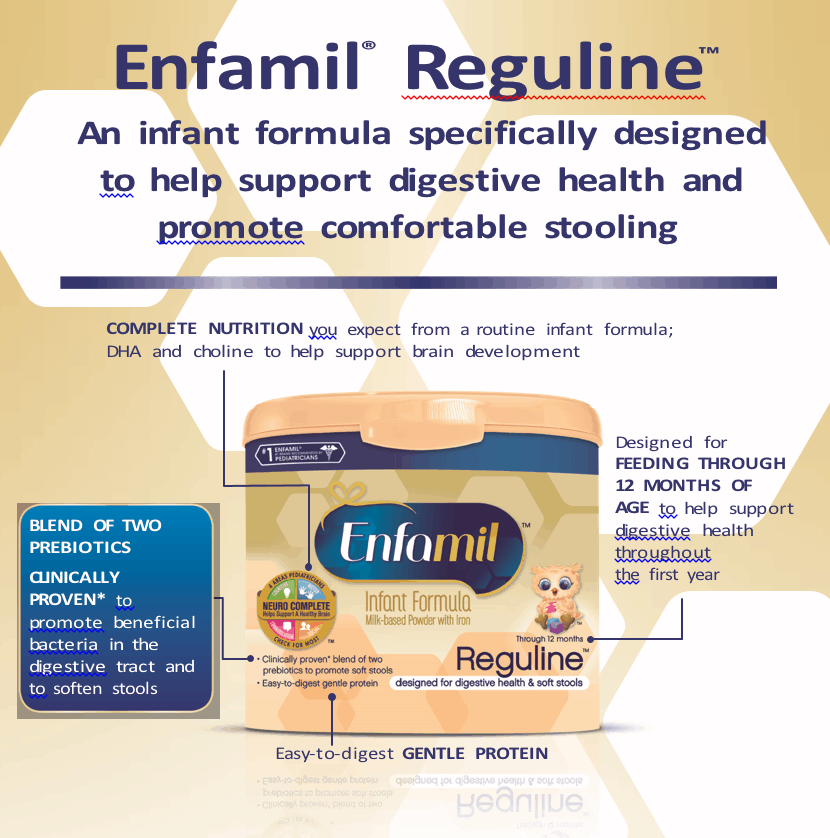I received product and compensation from Mead Johnson Nutrition to create this post written by me. All experiences and opinions expressed in this post are my own and not those of Mead Johnson Nutrition. Consult your pediatrician before making changes to your baby’s diet or if you have concerns related to your baby’s digestive health. Please see the product label/website for acceptable use and benefits. You can contact Mead Johnson Nutrition with product related questions or comments toll free at 1-800-BABY123 or through the Contact Us link on Reguline.com or Enfamil.com.
I remember the first time my infant had occasional constipation. The discomfort was clear to see and hear, and we were so worried. We tried everything we knew, called my mom (who was once upon a time a nurse), my sister…we could literally see the source of his trouble when I removed his diaper. It wasn’t fun. With some guidance from the pediatrician, I was able to help my baby to get that offending poo out and get some relief. Yes, gross. But you know what? That’s part of having a baby. Babies poop. But sometimes babies don’t have an easy time pooping, and it’s our job as the parents to do what we can to help their teeny little bodies and digestive systems to have things in order so that poop isn’t a painful experience for them.
My son was both breastfed and formula fed. (Actually, all three of my kids were, to some extent). That one instance of constipation and seeing our baby in pain had us educating ourselves in many ways about baby poop. Gross as it was, I didn’t mind helping my son to get that out, but that wasn’t going to help him to keep from having that horribly hard and painful poop again. We needed to figure out a way to get his little belly and digestive tract working as a team to do their job. Seeing my baby so uncomfortable was not something I wanted to see again, not if there was anything I could do to help ease his pain.
We spoke with our pediatrician at length about what to do. She made recommendations based on what was available at the time for infant formula that could help, and after discussing, we had a plan of action. One of the reasons I love our pediatrician so much is that she, like me, knows that good bacteria in our digestive systems helps to keep our bodies working well and she encourages us to use probiotics (“good” bacteria) even today, with the kids being 10, almost 6 and almost 8.
Were this happening today, there are actually infant formulas like Enfamil® Reguline™ that are specifically designed to help support digestive health for infants. Enfamil® Reguline™ has 2 prebiotics in the formula that can help feed the good bacteria in your baby’s digestive tract.
But how do you KNOW if your baby is actually constipated? That’s not always an easy answer. I have 3 kids. All 3 went through infancy. All 3 were champion poopers, but honestly? All 3 had very different “stooling” experiences. One of them used to get very red in the face and grunt a lot, but also put both hands in the air almost like pulling a rope. Another, who was 90% breastfed, popped once every 10 days. (Apparently most breastfed babies poop several times per day. My kids aren’t rule followers, I guess). She would “ready” herself for a bowel movement for about 20 minutes before it happened, so it was quite easy to be prepared and know when things were about to get moving, so to speak.
With my son, there were clear signs of his occasional constipation, obvious discomfort, inability to expel the stool, and us being able to SEE the offending stool with our eyes made the realization of his occasional constipation pretty easy.
The first thing to remember when assessing your baby’s stooling habits is that babies and adults are very different. As a result, what would be cause for concern in an adult may actually be normal for an infant. For example, because infants have weak abdominal muscles, they have to work really hard to have a bowel movement. So, straining at the stool isn’t necessarily cause for alarm, even when the infant cries or gets red in the face. For an infant to have a bowel movement is a major effort, especially because they often need to poop while lying on their back or sitting on the floor.
The American Academy of Pediatrics suggests asking yourself the following questions. These signs can suggest actual constipation:
- Is your baby excessively fussy?
- Is she spitting up more than usual?
- Is he having dramatically more or fewer bowel movements than before?
- Are her stools unusually hard, or do they contain blood?
- Does he strain for more than 10 minutes without success?
If your baby shows these signs, consult your baby’s healthcare provider. While it’s probably nothing to be concerned about, there are rare underlying conditions that can be causing the constipation, and it’s better to check it out.
Stooling Frequency:
How often does a “normal” baby poop?
Bowel habits of babies are as different as the babies themselves. Some babies go several times a day, while others go every few days or even less frequently. Also, breastfed babies usually poop more frequently than those who are formula fed. Finally, a baby’s stooling habits will change as their digestive system matures and their diet changes.
How long does a baby have to go between BMs to be “constipated?”
Constipation is determined by more than just the frequency of bowel movements. One child may go two or three days without a bowel movement and not be constipated, while another infant might have relatively frequent bowel movements but have difficulty passing the stool. Or a child’s constipation may go unnoticed if he passes a small stool each day, while a buildup of stool develops in his colon. For this reason, it is important to also consider texture, color, size, and ease of passing.4
Stool Texture/Consistency:
What stool texture/consistency is “normal?”
There isn’t a “normal” stool consistency, since each baby’s individual digestive system and his current diet will affect his stools. Generally, formula-fed babies have soft, mushy stools; whereas breastfed babies or babies fed formulas that have prebiotics can have loose, seedy stools; and babies eating solid foods will have more formed stools.
Do hard stools mean my baby is constipated?
Hard and dry stools are a common sign of constipation.
Stooling Comfort:
What can I do to help my baby poop more comfortably?
As noted above, babies frequently strain to poop due to their weak abdominal muscles, posture, and the general immaturity of their digestive system. That doesn’t mean parents don’t want to help their baby pass a BM more easily and comfortably.
There are a variety of options that you can try at home. These options fall into three categories:
- Physical
- Nutritional
- Over the Counter products
Regardless of what you try, consult with your baby’s healthcare provider first.
Physical options include putting warm towels on your baby’s tummy or bicycling his legs, both of which can help to relax his muscles and loosen the stool. Another physical option is rectal stimulation, which can stimulate a reflex that causes the baby to stool.
Nutritional options work by drawing fluid into the intestine, which helps to loosen the stool. For babies who are not yet eating solid foods, commonly used options include fruit juices (usually prune, apple, or pear). Note that these options do add sugar to your baby’s diet, so they should be used in small amounts.
Once a baby starts eating solid foods, there are additional options. Fruits like prunes, pears, plums, and apricots can provide the same benefit as fruit juices, but without the added sugar.
Specially designed infant formulas can also help promote comfortable stools.
Over the Counter products for infants consist of glycerin suppositories and osmotic-type laxatives. Consult your child’s healthcare provider before using these options.
For more information:
HealthyChildren.org from the American Academy of Pediatrics: http://www.healthychildren.org/English/ages-stages/baby/diapers-clothing/Pages/Infant-Constipation.aspx
http://www.healthychildren.org/English/health-issues/conditions/abdominal/Pages/Constipation.aspx
National Institute of Diabetes and Digestive and Kidney Disease of the National Institutes of Health: http://digestive.niddk.nih.gov/ddiseases/pubs/constipation/
Mayo Clinic: http://www.mayoclinic.org/healthy-living/infant-and-toddler-health/expert-answers/infant-constipation/faq-20058519
Delaware Modern Pediatrics: http://www.dmpkids.com/Constipation-in-Infants/
I’m not here to debate. I’m here sharing with you, as a mom, a formula option that is available that is designed to help support your baby’s digestive health which can help keep things moving smoothly. While this post is sponsored by the folks at Enfamil, opinions are my own. Please consult with your pediatrician with any questions you may have about your own baby’s feeding.




Adrienne says
This is so informative. It’s good to know that I’ll be more informed when my future children experience this common, yet uncomfortable situation.
Kate says
Ill have to share this with my sister in law. Its awful when babies are having such discomfort.
Nancy @ Whispered Inspirations says
Oh my goodness, my baby days are behind me but, this is a great resource for new moms. It’s important to know what to look for.
Angie K says
I remember babysitting my friends son and he had constipation so bad I felt so bad for him. They tried everything they could think of. This sounds like a great product thanks for the review!
becka says
I never really had to deal with constipation with my younger 2 but my oldest poor baby was always constipated. It’s hard on the poor little ones.
Rosey says
Oh my gosh it’s so awful the first time this happens and you don’t know what’s going on. It’s nice that you wrote a post about it.
Tatanisha Pitts-Worthey says
I remembered going through this with my boys and it was bad, really bad. It’s really amazing that there are product like this one readily available in the market.
Chrystal | Nevermore Lane says
Kiddo was 3 when she came into my life. So, she was on sippy cups, not bottles. I missed out on the bottle stages.
Ann B says
My Son had a terrible time with constipation. I used to feel so bad for the little guy. We had to change to a few different formulas before we found the right one.
Lynndee says
My son was constipated a few times when he was a baby and I was so worried. How I wish I had known this.
lisa says
It’s so nice to know that there is a formula out there now that can help babies not be constipated. It is such a helpless feeling when you’re babies are uncomfortable.
Chubskulit Rose says
I wish I have known about this when my kids were little. They were always constipated and it was awful!
Jesiac H says
My step mom always says that all good conversations lead to poop 🙂 This is such a struggle for babies, and some more then others! Great article!
Emily says
When I was an older teenager I watched my neighbors girls who were 2 and 4 at the time. I had watched them 10+ times without an issue and then one night we were just playing in their living room and the 2 year old started screaming extremely loudly and she had this pained and panicked expression on her face. I really thought she had been stung or stepped on something that hurt her or something but she was so upset that she wasn’t responding to my questions and she just kept screaming. After a few times of saying Ali what is wrong? What hurts? Can you show me what hurts? etc the 4 year old chimed in “She’s just trying to poop.” which I basically just dismissed because it didn’t make any sense to me. After a few more minutes of screaming I called the mom and she said yeah she really IS just pooping – she was regularly so constipated that she would have terribly painful movements and would scream until she was done even though she was on medication that helped it wasn’t helping enough. It was awful. Later the mom apologized for not warning me about it and told me that she had been having digestive issues since birth. It’s great that there are now formulas out there that are made just for babies with those types of issues. It was scary to watch a toddler experience, I can’t imagine how tough it would be when the child is a newborn who has no communication skills whatsoever.
Mykidsguide says
I had this problem with my daughter when she was a baby. Her pedia advised me to give her a few doses of prune juice. It worked for her.
jo says
Wow! I haven’t heard of a formula designed for constipation. Oh I just hate constipation esp in babies!!! It’s just so painful to watch. I remember my nephew going through that and it’s hard to watch him pass the stool! 🙁 Glad to know there are more ways to lessen the pain, even a formula! Just amazing!
Liz Mays says
This is a really helpful guide. Both of my kids were fed in different ways for different amounts of time. Their “schedules” were all over the place.
Dawn says
Thankfully, when my daughter was little we never really had this issue. I found this article to be very helpful though! I’ll have to pass this on to some fellow mommies!
Jenn says
Great post! It is awful when babies are constipated! I hated seeing them go through it!! This is a great resource for anyone experiencing it! Enfamil was always my formula of choice!
Melissa Pezza says
I think this is a great idea! Anything we can do to reduce discomfort for our babies is great. Constipation is no fun for adults. I can’t imagine having it as a baby! =(
Stacie @ Divine Lifestyle says
I never had this problem with my kids, but I new a mom who’s child was constipated. It was a really worrisome experience for her, and her baby was just miserable.
Robin Rue (@massholemommy) says
I don’t remember either of my kids having this issue at any point, but I can only imagine how uncomfortable it is for the little ones 🙁
Jeanette says
I always hated when my son was constipated. I wish there was something like this when he was a baby! I will tell my sister in law about this since she has a new born.